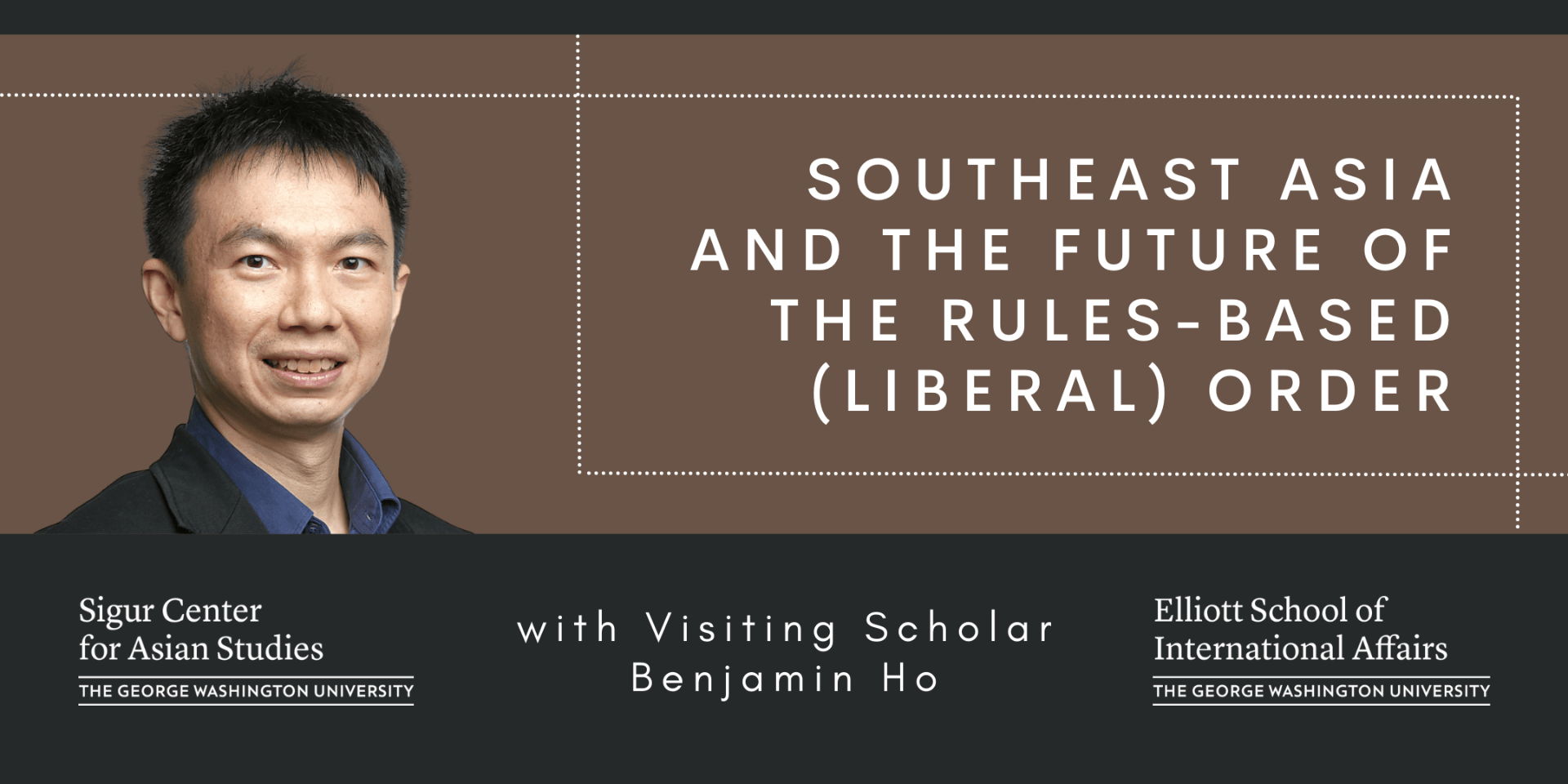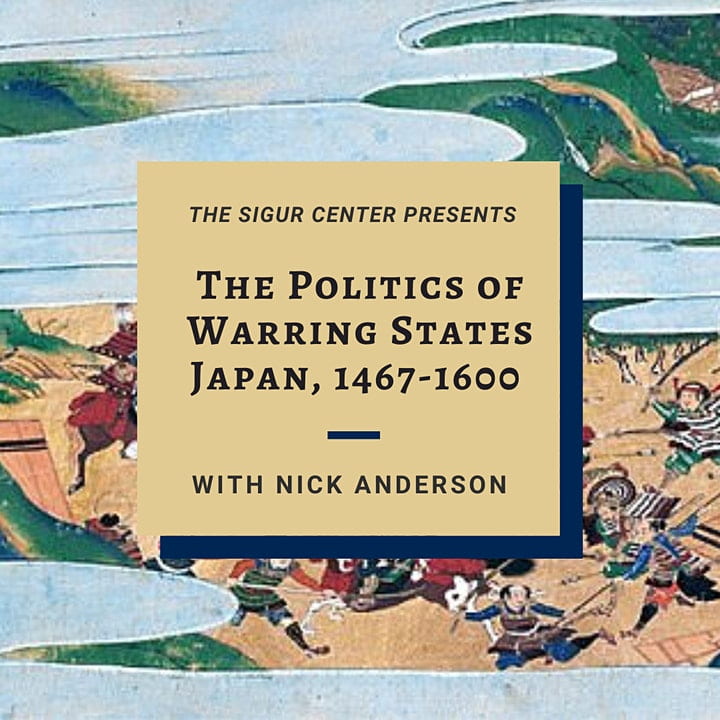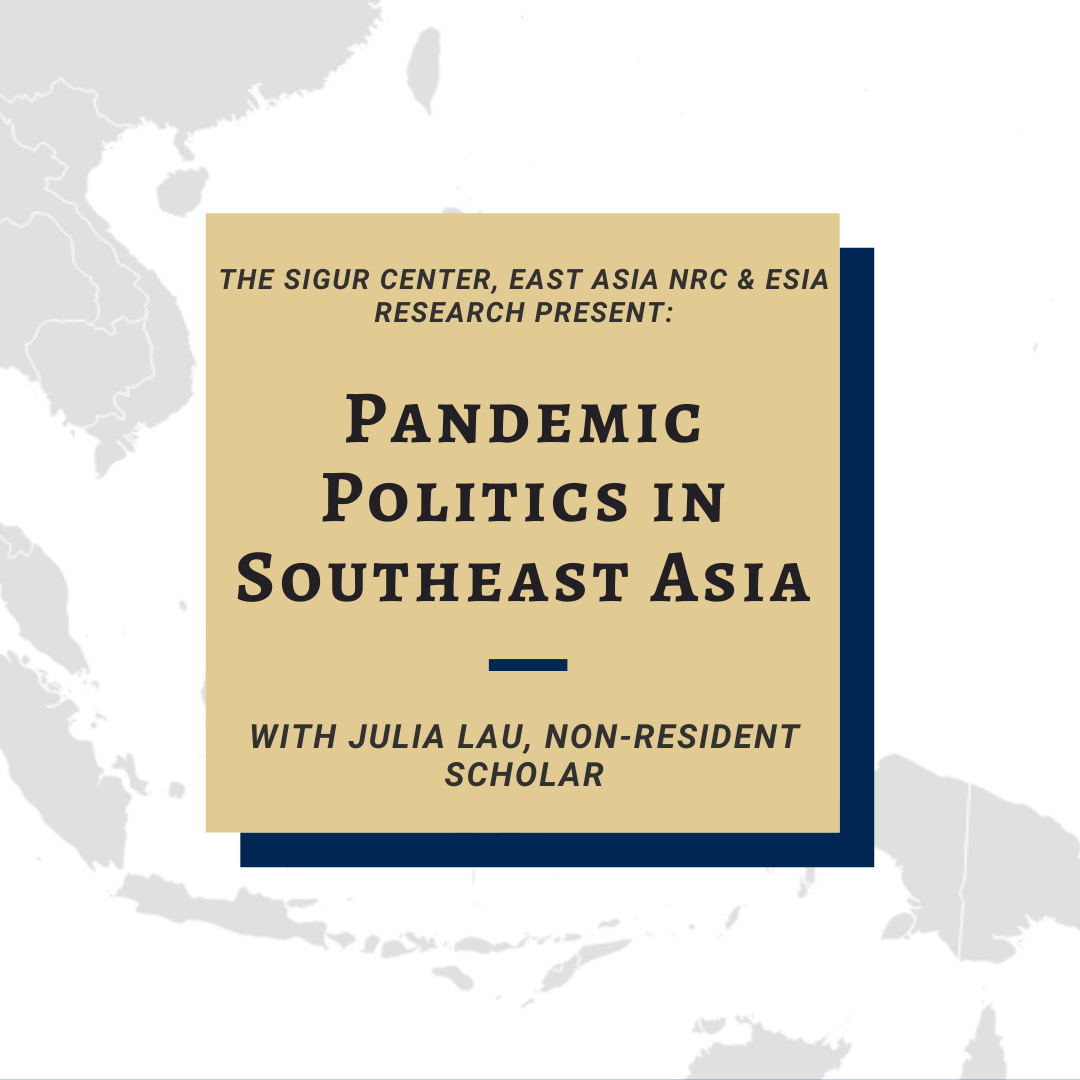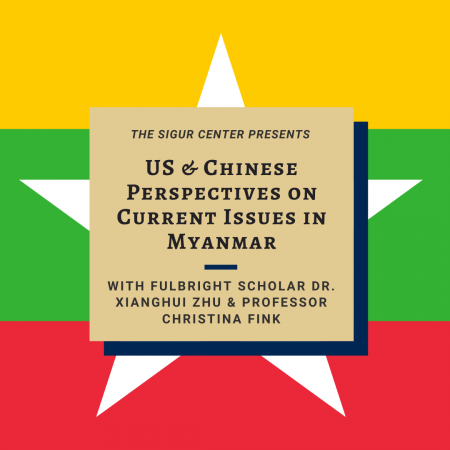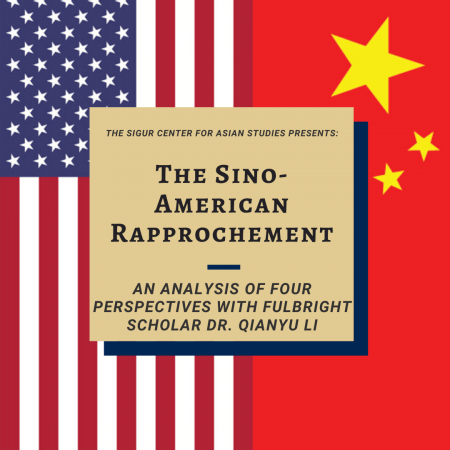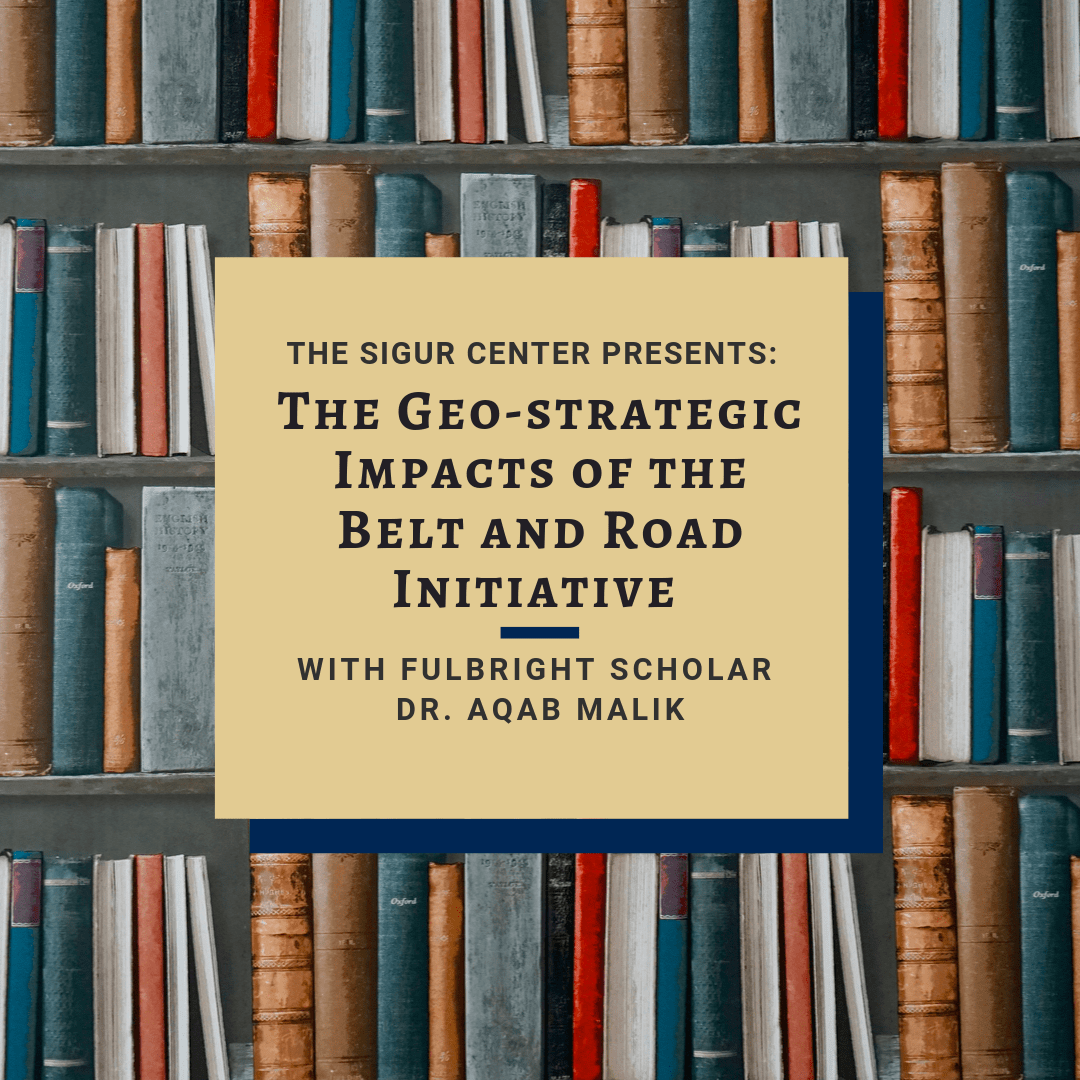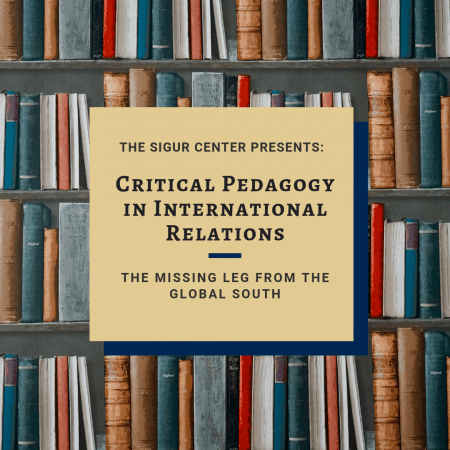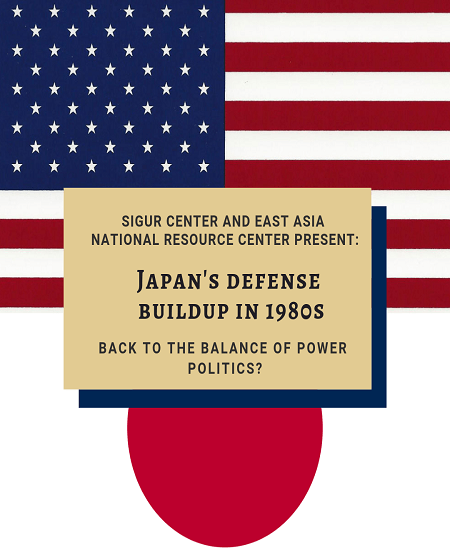Sigur Center for Asian Studies
At the Elliott School of International Affairs
- About Us
- News & Events
- Visiting Scholars
- Publications
- Academics
- Opportunities
- Asia on E Street Blog
Viewing Message: 1 of 1.
Notice
Notice
This site uses cookies to offer you a better browsing experience. Visit GW’s Website Privacy Notice to learn more about how GW uses cookies.

